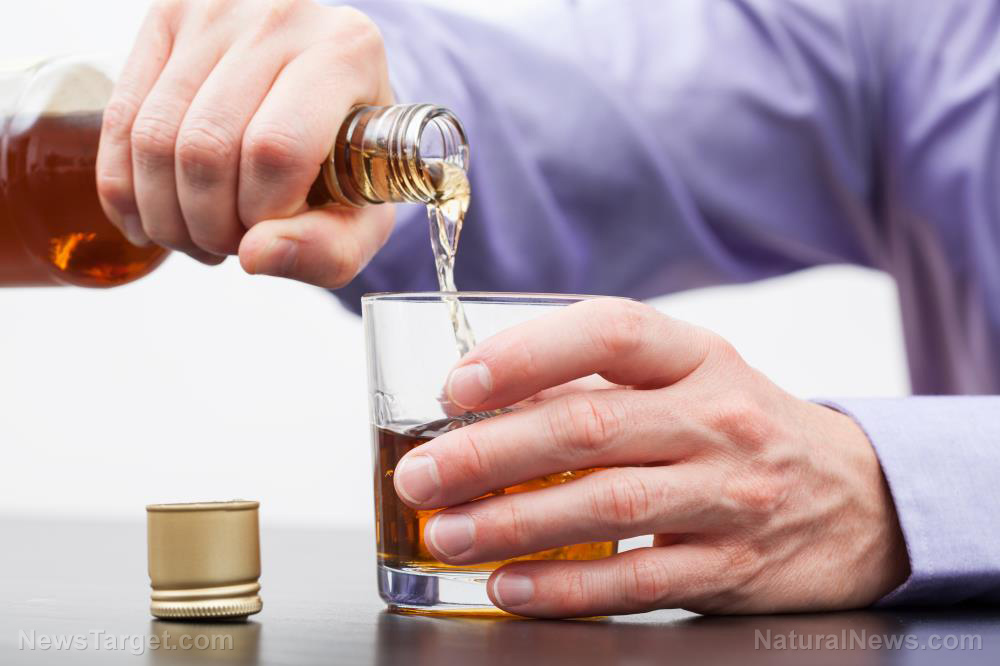Drinking “moderately” can STILL increase the risk of stroke, says research
11/05/2019 / By Edsel Cook

A recent study published in The Lancet revealed that even moderate alcohol consumption can increase the risk of stroke. The study – a collaboration between researchers from the University of Oxford and universities in China – goes against the grain of earlier studies that say modest alcohol consumption has some benefits to a person’s health.
In particular, a study published by the Karolinska Institute in Sweden suggested that drinking moderately can help bring down the risk of suffering a stroke. The current study, however, concludes otherwise.
“There are no protective effects of moderate alcohol intake against stroke,” explained Zhengming Chen, an epidemiologist at Oxford and a co-senior author of the study.
When moderate doesn’t mean safe
The researchers collated data from the China Kadoorie Biobank, which looks at the relationship between chronic illnesses and genetic and environmental factors. Data from over 500,000 adults from ten areas in China were enrolled in the current study, including incidences of stroke, brain hemorrhage, and heart attack; mortality and morbidity data; and hospital records.
The findings revealed that over 30 percent of men reported weekly alcohol consumption, compared to just two percent of women. While men who reported drinking at least one to two drinks a day had lower risks for all three diseases, the team did not find any association between their decreased risk and alcohol consumption. What they did find, however, was a uniform increase in high blood pressure and stroke risk for those who consumed alcohol, indicating a relationship between the variables. In particular, participants who consumed more than four extra servings each day could increase their chances of having an ischemic stroke, a medical emergency caused by a blood clot blocking or plugging a blood vessel in the brain.

Other studies have gone on to show that alcohol exerted toxic effects on the human body. Drinking alcoholic beverages can lead to a higher risk of developing various cancers. In particular, alcoholism contributed to significantly higher risks of liver cancer. (Related: That’s enough alcohol: Study findings warn that drinking alcohol daily is linked to greater stroke risk.)
Avoid stroke and repair liver damage caused by alcohol consumption
There are steps people may take to reduce the risks of stroke and prevent any health issues attributed to alcohol consumption. The first and simplest action is to stop drinking at once.
A person who has a record of liver problems or comes from a family with a history of cancer or stroke is vulnerable to the harmful effects of alcohol. He shouldn’t drink in the first place. Switching to a healthy diet will help undo the damage that alcohol causes to the liver and the rest of the body. Eat plenty of resveratrol-rich foods from organic sources.
Take more nutrients like folic acid, niacin, thiamine, and vitamin C. Also, consider taking milk thistle to protect the liver.
Patients with heart problems must look for a reputable integrative healthcare provider. The provider will look into the patient’s oral health, unknown or potential infections, emotional trauma, and deficient levels of vital nutrients.
A healthy diet, proper detoxification therapy, and positive lifestyle choices will greatly lower the risk of a stroke better than moderate alcohol consumption.
Sources include:
Submit a correction >>
Tagged Under:
Alcohol, disease prevention, heart health, Liver cancer, liver damage, Milk Thistle, prevention, red wine, stroke
This article may contain statements that reflect the opinion of the author





















